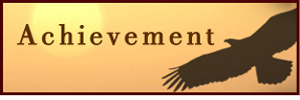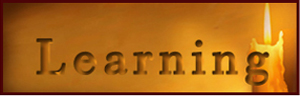The Opportunity of Cultural Conservation

In the age of trash talk and cultural chaos, you and your family are bombarded from every direction by music, television, e-mails and tweets, books, and media messages. Can you separate the wheat from the chaff, the elements of quality from those of unabashed commercialism? More importantly, can the members of your family tell the difference between the arts and trash? Contrary to what you might think, it isn’t at all impossible to make sense of these messages in a world that seems confused and bewildered, unmoored from any sense of values or set or principles.
The solution is what some would call the clear philosophy, others the right mindset, and still others traditional values in a fast-changing world. In the 21st century, too many people, especially children, and young adults have confused fame with accomplishment, celebrity with achievement, and notoriety with heroism. The result is a “celebrity culture,” one in which being noticed is more important than the reason for being noticed. Recognition becomes a virtue unto itself.
Through Cultural Conservation, and through this website, you can acquire the tools (and pass them on to your family and friends) to see through the haze, the morass of commercialism, noise, and nonsense often masquerading as a culture. Start today on the true path to progress here.
[/vc_column_text][/vc_column][/vc_row]
The Joy of Music

Does music play an important role in your life? Throughout history, music has been praised as an international language, Beethoven described it as a higher revelation than all wisdom and philosophy. Martin Luther declared, “Next to the Word of God, the noble art of music is the greatest treasure in the world.” Leo Tolstoy called it “the shorthand of emotion.” But in today’s fast-paced pop culture, many are not even sure what we mean by music. If you ask someone for an opinion about music, he will likely respond with comments on today’s pop music, rock, rap, or perhaps country. Many people have no views on classical music because they simply have never heard it. Nor have they truly listened to jazz or the music of the Great American Songbook. The latest tune from a recent film may be familiar, but what about the classic film scores that include the finest music ever written for motion pictures?
The joy of music can provide the greatest of pleasures and communicate on an emotional level beyond words. The composer Benjamin Britten said, “It is cruel, you know, that music should be so beautiful. It has the beauty of loneliness of pain: of strength and freedom. The beauty of disappointment and never-satisfied love. The cruel beauty of nature and everlasting beauty of monotony.”
The best of our musical heritage doesn’t have to fade into oblivion. As a subscriber to “Cultural Conservation,” you will encounter all kinds of music on our website, classical, popular, old, and new. You will discover how and why music can communicate in ways that are unique. Encounter the Joy of Music here.
The Delight of Language

The novelist E. M. Forster asked, “How can I tell what I think till I see what I say?” How we speak and write tells a great deal about us. Unfortunately, the way many of us speak and write today reveals that our ability to use language is in decline. Students graduate from high school and college unable to articulate a simple sentence without saying “y’know” or “like.” Many haven’t read a book that hasn’t been assigned to them in school. When asked to explain their ideas, they are at a loss for words. Meanwhile, bureaucrats, academics, and lawyers use big words to conceal their actions and confuse people. Our ears are assaulted by coarse, vulgar speech. Our minds are inhibited by political correctness
It doesn’t have to be this way. Our language is a treasure. Words can be the key to adventure and inspiration. Speaking, reading, and writing our language can lead us to new worlds without ever walking out the front door. As a subscriber to the “Cultural Conservation website,” you will join us in on, a journey filled with familiar and unfamiliar words, surprises, knowledge, and laughter Experience the delight of language here.
The Pride of Achievement

What does it mean to be successful? The answer to this question may appear to be simple, but it is far more complex than one might imagine. Success means different things to different people. Does achievement depend on becoming famous or making a huge sum of money? Today we often confuse celebrity with achievement, fame or notoriety with accomplishment. The tabloids gleefully report every detail of gossip in the lives of sports stars, pop music idols, and Hollywood icons. A multitude of celebrity-obsessed fans remain ignorant of our nation’s heroes or our most accomplished men and women in music, literature, art, theater, dance, or film.
The legacy of our greatest achievers remains with us, often just waiting to be discovered. Those who are most accomplished today stand on the shoulders of those who have preceded them. Subscribers to the “Cultural Conservation” website can meet the great achievers of past and present. Some will be familiar, others will be new. But all are ignored by today’s media and can add a new dimension to our lives. Benjamin Franklin said, “Without continual growth and progress, such words as improvement, achievement, and success have no meaning.” Explore the pride of achievement here.
Our Vanishing History

Does our past matter? Today our attention is almost entirely on the present: news headlines, the latest computer or digital device, and our busy schedules. History, to many, is boring and irrelevant. A shocking number of people have no idea why we celebrate our national holidays, sing our National Anthem, or became the country we are today. Our history is vanishing before our eyes. Students can graduate from high school or college without studying history at all. One southeastern state considering dropping everything that occurred before the presidency of Rutherford B. Hayes from its history classes: no Declaration of Independence, Constitutional Convention, or Civil War.
The Polish scholar and historian Leszek Kolakowski said, “We learn history, not in order to know how to behave or how to succeed, but to know who we are. “ Subscribers to the “Cultural Conservation” website can meet the great historical figures and examine the great ideas of the past. Learn about our vanishing history here.
The Challenge of Self-Education and Learning for a Lifetime

After exploring the facts and ideas presented on this website, do you feel that you’ve missed the opportunity to discover the music, art, theater, and literature that are neglected today? Are members of your family depending on our schools and entertainment media to keep you in touch with the best of our culture, past, and present? If the answer is “no,” the situation isn’t hopeless. You can still rediscover our vanishing history, the joy of music, the delight of language, and the pride of achievement in the Age of Trash Talk and Cultural Chaos. Self-education is a challenge that awaits you and your family. Learning for a lifetime is not only fun, it adds an entirely new element to your life, whether you pursue it alone or together with children or grandchildren.
Many of the most accomplished men and women in history were entirely self-educated. Ray Bradbury, the most famous science fiction writer of novels, short stories, and screenplays, couldn’t afford to go to college when he finished high school. So he described himself as a graduate of the public library. American Presidents, captains of industry, celebrated writers, artists, and musicians have often been self-taught. In today’s high-tech era, there are countless resources available that can bring you and your family in contact with a cornucopia of cultures without even leaving your home. Read more about the challenge of self-education and learning for a lifetime here.
Not every family responds to this crisis in the same way.
See why Cultural Conservation is so important to your children and grandchildren. To see what choices your family can make today, read A Tale of Two Families here!
To learn more about Cultural Conservation, the organization, click here.